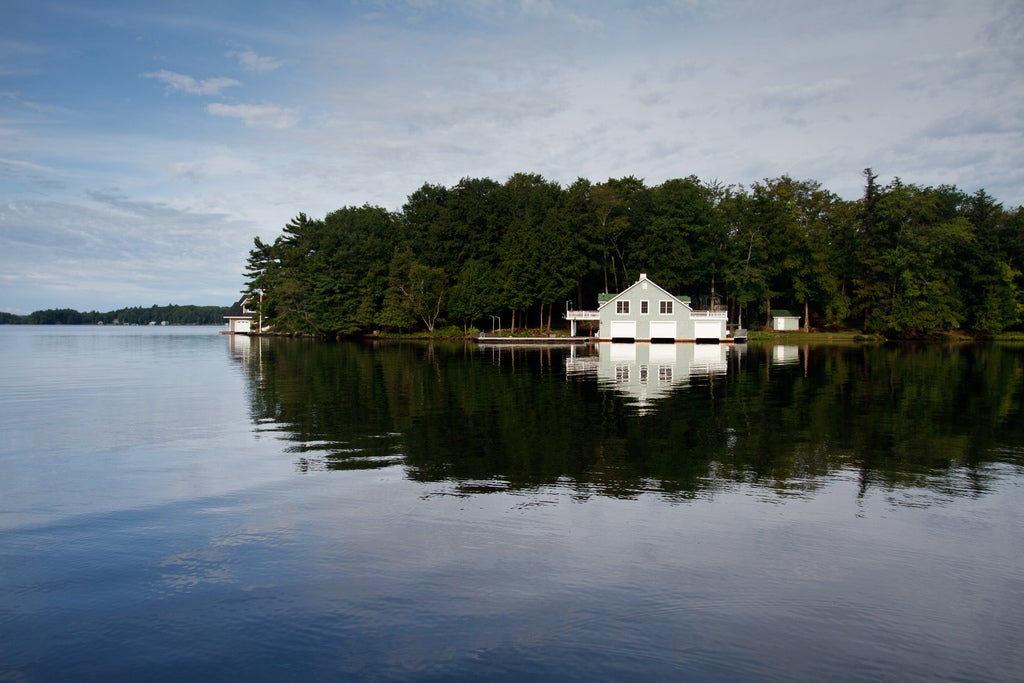
WATER:
- Consider turning off the water, and even the hot water tank breaker while you are not using the cottage
- Seasonal cottagers who close up for the winter drain water heaters, empty pipes and add anti-freeze to drains
- Failing to drain pipes may cause them to burst due to freezing
POWER:
- Turn off all breakers and electrical panel
- Unplug all major appliances if the power remains on
- Leave thermostat at 10 degrees Celsius, turn off all heaters and fans
- Board up all screen windows to avoid damage to the screens and the interior of your cottage
- Arrange a service and operational check to your generator
PESTS:
- Plug any small openings from the interior and exterior and have the chimney capped
- Charge mousetraps and place them around the cottage
- Remove any remaining garbage from the cottage and storage sheds to prevent bears
FOOD:
- Remove all food items from the cupboards, fridge and freezer
- Take this opportunity to disinfect the cupboards, fridge and freezer
- Leave the doors wide open to prevent mold or mildew.
FIREPLACE:
- Clean out the fireplace and woodstove.
- Make sure you dispose of any coals and ashes safely and soak with water.
- Ash provides calcium for our lakes so please leave old ash into the forest and shorelines. Lake osteoporosis is an issue.
- Close the flu and dampers.
BEDS AND FURNITURE:
- Cover mattresses with plastic matrress covers
- Drape plastic over all furniture to protect them from mice or other pests
- Fabric softener helps keep mice out, place in drawers, on furniture, in closets, or anywhere mice could make a home
ROOF:
- Clean your eavestroughs, downspouts and inspect your roof. Make sure the downspouts allow water to drain far enough away from your structure to prevent issues with the foundation.
- To prevent moss growth on shingles, aside from sweeping pine needles away, place a strip of zinc along the roofline.
EXTERIOR:
- Survey the trees and branches for potential hazards
- Rake leaves to make spring chores easier
SEPTIC:
- Inspect the septic tank. Make sure the filter is clean. Do not have the tank pumped before winter
- If there is a sump pump, consider a battery back up in case of winter rains to prevent flooding
SNOW:
- Make arrangements for regular snow removal from your driveway and/or roof when needed.
FIRE HAZARDS:
- Remove materials like old magazines, newspapers or books, flammable solvents.
TANKS:
- If you use an oil tank, get it inspected to avoid any leaks developing during the winter season
- Disconnect the propane tank from the BBQ, store the propane tank in an area that is protected
SECURITY:
- Cover and secure all your windows and doors to make your property less attractive for potential thieves
- Make sure there are no valuables visible from the outside. Place security stickers visibly
STORAGE:
- Safely store and secure outdoor furniture, the BBQ, canoes, kayaks, paddle boards, paddle boats, floaties, seadoos, and planters to protect them from the elements
- Gather clothing articles that are no longer used and consider donating them to a local charity
CHECKS:
- Be sure a trusted neighbor or friend checks on your home while you are away
- Provide your updated contact details in case of an emergency
- If your home is insured as a seasonal property you should have it checked regularly
- If the property is considered a secondary home, insurance companies require a record of someone who checks in regularly
LEAVING:
- Review this checklist to ensure everything is finished
- Take pictures of everything, in the event of a break in, or weather damage this will make the insurance process easier!
- Inspect the whole property, including the inside and outside of the cottage
- Lock all buildings and sheds
- Do no leave any valuable items